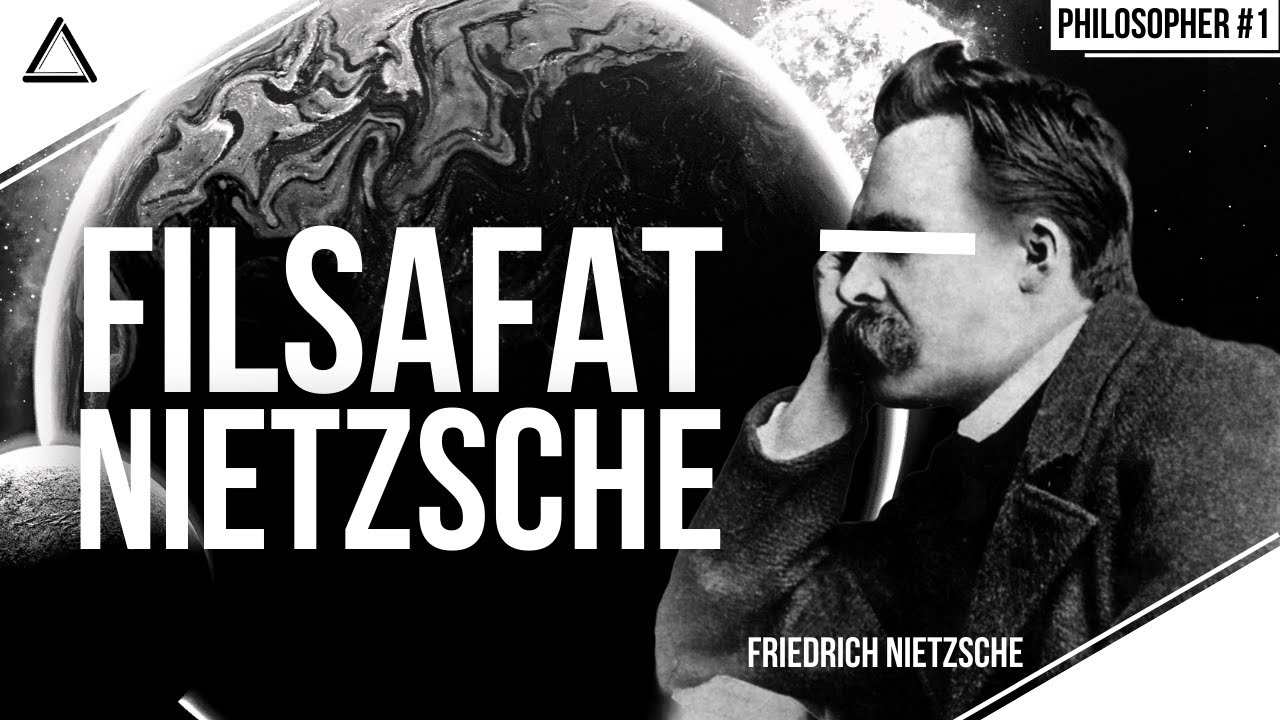Nietzsche's Theory Of ‘Finding Yourself’: It’s Not About Self-Discovery
Summary
TLDRThis script explores Friedrich Nietzsche's philosophy of self-creation, challenging the traditional notion of 'finding oneself.' Nietzsche argues that the self is not something to be uncovered but something to be actively created through deliberate actions and choices. He emphasizes rejecting societal norms, embracing personal values, and viewing life as an artistic process. Nietzsche's concept of the Ubermensch represents someone who transcends conventional morality, while 'amor fati' encourages embracing life's challenges. Ultimately, Nietzsche calls for an empowered, authentic, and ever-evolving approach to life.
Takeaways
- 🔍 Nietzsche believes that the self is not something to be found but something to be created.
- 🎨 The process of self-creation is akin to an artist molding a masterpiece, continuously shaping and redefining one's identity.
- ❌ Nietzsche rejects the notion of a fixed, unchangeable self that exists to be uncovered, seeing this as a distraction from true growth.
- 🗝️ Finding oneself, in Nietzsche's philosophy, involves less introspection of an inherent identity and more focus on who one aspires to become.
- 🌟 Nietzsche's proclamation that 'God is dead' symbolizes a universe without a divine blueprint, suggesting humans must create their own meaning and values.
- 💪 Nietzsche's concept of the 'Ubermensch' represents an individual who has transcended conventional morality and societal expectations to live according to their own values.
- 🔄 Life is seen as a dynamic process of becoming rather than being, where identity is continually forged through conscious choices and actions.
- 🛡️ Nietzsche advocates for rejecting the 'herd mentality' imposed by societal values and instead embracing personal ideals and independent thinking.
- ❤️ 'Amor fati,' or the love of one's fate, is about embracing life's challenges and hardships as necessary parts of the creative self-development process.
- 🏔️ The journey of self-creation is deeply personal, requiring courage, resilience, and a willingness to confront the unknown and create a meaningful life.
Q & A
What does Nietzsche mean by saying that 'the self is not something to be found, but something to be created'?
-Nietzsche suggests that the self is not a pre-existing entity waiting to be discovered. Instead, it is something we actively shape and create through our choices, values, and actions.
How does Nietzsche's philosophy differ from traditional self-help models?
-Unlike traditional self-help, which often focuses on finding an inherent 'true self' by looking inward, Nietzsche advocates for self-creation. He sees life as a continuous process of building identity through actions, choices, and values rather than uncovering a fixed essence.
Why does Nietzsche reject the idea of a fixed, unchangeable self?
-Nietzsche rejects this notion because he views life as a dynamic process of becoming rather than being. Without a divine blueprint, there is no inherent, static essence; humans must create their own meaning and identity.
What role do personal values play in Nietzsche's concept of self-creation?
-Personal values are crucial in Nietzsche’s philosophy of self-creation. He encourages individuals to identify values they truly resonate with, rather than those imposed by society. Authentic values guide the process of shaping one's identity.
How can one differentiate between authentic values and those imposed by society?
-Nietzsche advises reflecting on what we genuinely cherish and have loved. Authentic values are those that resonate deeply with us, as opposed to values adopted due to societal expectations, conformity, or fear.
What does Nietzsche mean by 'herd mentality,' and why does he caution against it?
-Herd mentality refers to following societal norms and values without question. Nietzsche warns that it stifles individuality and personal growth, promoting conformity and mediocrity. He advocates for the courage to embrace unique personal values.
Who is the 'Ubermensch' in Nietzsche's philosophy, and what does this concept represent?
-The Ubermensch, or 'Overman,' represents an individual who has transcended societal norms to create personal values and meaning. This concept embodies Nietzsche’s ideal of self-creation, with a focus on purpose, passion, and creative power.
What is 'Amor Fati' and how does it relate to self-creation?
-Amor Fati, meaning 'love of fate,' is Nietzsche’s idea of embracing life’s challenges and hardships as integral parts of the self-creation process. Instead of resisting fate, one should incorporate it creatively into one’s life narrative.
How does Nietzsche use the metaphor of life as an artistic endeavor?
-Nietzsche likens life to an art form, where each action and decision shapes one's identity like an artist molds a sculpture. Self-creation is an artistic process, aiming not for perfection but for authenticity, depth, and originality.
Why does Nietzsche emphasize the importance of embracing both strengths and flaws in self-creation?
-Nietzsche believes that acknowledging both strengths and weaknesses allows for true self-expression. By incorporating flaws into one's character, individuals create a unique and complex identity, much like an artist incorporating imperfections into a work of art.
Outlines

Dieser Bereich ist nur für Premium-Benutzer verfügbar. Bitte führen Sie ein Upgrade durch, um auf diesen Abschnitt zuzugreifen.
Upgrade durchführenMindmap

Dieser Bereich ist nur für Premium-Benutzer verfügbar. Bitte führen Sie ein Upgrade durch, um auf diesen Abschnitt zuzugreifen.
Upgrade durchführenKeywords

Dieser Bereich ist nur für Premium-Benutzer verfügbar. Bitte führen Sie ein Upgrade durch, um auf diesen Abschnitt zuzugreifen.
Upgrade durchführenHighlights

Dieser Bereich ist nur für Premium-Benutzer verfügbar. Bitte führen Sie ein Upgrade durch, um auf diesen Abschnitt zuzugreifen.
Upgrade durchführenTranscripts

Dieser Bereich ist nur für Premium-Benutzer verfügbar. Bitte führen Sie ein Upgrade durch, um auf diesen Abschnitt zuzugreifen.
Upgrade durchführenWeitere ähnliche Videos ansehen

How To Find Your Real Self - Friedrich Nietzsche (Existentialism)

Nihilisme Membunuh Nilai Tradisional | Filosofi Friedrich Nietzsche | Philosopher #1

PHILOSOPHY - Nietzsche

Nietzsche Explained - Thus Spoke Zarathustra Summary - How To Read Nietzsche

Why You Should Seek Power, Not Happiness - Nietzsche's Guide to Greatness

Conflictoplossing bij Nietzsche
5.0 / 5 (0 votes)
